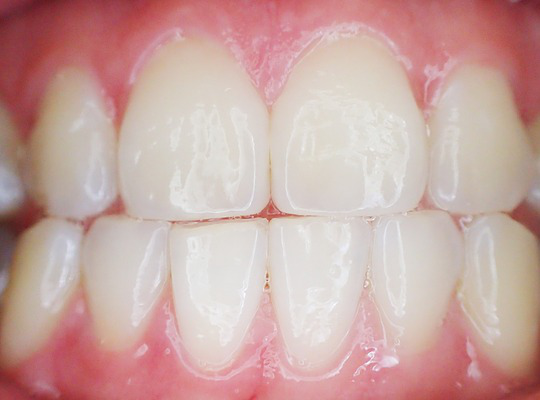A large number of Americans experience bleeding and swelling in their gums. In fact, the American Academy of Periodontology revealed that 64.7 million adults have gum disease, many of whom remain undiagnosed.
This is a serious concern, because if left untreated, the symptoms can worsen, leading to tooth loss, or even cancer.
What are the symptoms of periodontal disease?
Healthy gums are meant to have a pale pink appearance. Furthermore, there should be no loose areas around the teeth either. When a patient experiences periodontitis, their gums can become swollen and inflamed. Due to the inflammation, the gums appear redder, and in some cases, even purple. If a patient bleeds frequently from the gums while brushing their teeth or even when touching them, there’s a likelihood of them having periodontitis. Patients with periodontitis often complain of having bad breath as well, even when they maintain oral hygiene.
In later stages of the disease, a patient can experience tooth loss due to loose teeth, and find it difficult to chew because of the pain.
What causes it?
Our mouth accumulates bacteria over time, especially after we eat food or have beverages other than water. This causes plaque buildup in the mouth. And while regular brushing can get rid of some of the plaque, plaque that has built up over the years hardens and cannot be removed by brushing and flossing. The hardened form of plaque is called tartar.
Tartar propagates bacterial plaque toward the tooth root. The resulting inflammation disrupts the gum’s attachment to the root, forming what’s called a periodontal pocket. This pocket allows the disease to fester, leading to full-blown periodontitis.

Smoking is another risk factor that causes periodontitis. It can reduce the effectiveness of the treatment for periodontitis as well. Other factors that can increase the risk of gum disease are diabetes, AIDS, and hormonal changes.
Types of periodontitis
Chronic periodontitis:
This type of gum disease is most common in adults. Plaque buildup causes chronic periodontitis and it eats away at the gums and bone.
Aggressive periodontitis:
This type of gum disease begins in childhood and isn’t as common. It’s often linked to genetics, so those with a family history of aggressive periodontitis are more susceptible to it.
Necrotizing periodontitis:
This type of periodontitis kills gum tissue and the structures around the teeth and bone. This is due to restricted blood to the affected areas. This degenerative gum disease occurs among those who have compromised immune systems, like someone with HIV, cancer, or even malnutrition.
How is it treated?
Since periodontitis is an infection of the gums, a dentist’s main goal is to control the infection. The extent of the gum disease will determine the medication that will be prescribed to a patient. Oral hygiene will also have to be followed to the T to maintain the health of the gums and teeth. Dentists also recommend that patients quit smoking, consume more water, and cut down on unhealthy food.
At Rapha Dental, one of the best dentist in Cinnaminson NJ, we can treat your gum disease effectively. Visit our dental clinic in New Jersey. We also provide cosmetic dentistry like affordable dental implants and teeth whitening NJ. Call (856) 829-8668 for more information.

